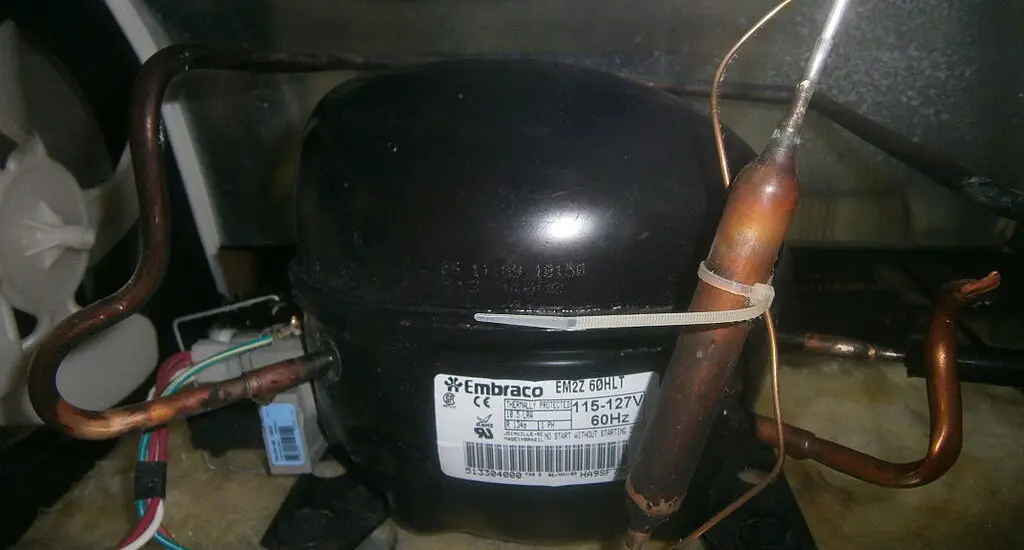Does a refrigerator compressor make noise? If you’re curious about this, then you’re in the right place. This detailed guide will take you through every aspect of refrigerator compressor noise, from what it is to when you should be concerned.

Table of Contents
Does a Refrigerator Compressor Make Noise?
It is normal for a refrigerator compressor to emit some level of sound. A typical refrigerator compressor generates a gentle hum or buzzing noise as part of its regular functioning. This is the result of the mechanical action inside the compressor, where it compresses low-pressure gas into high-pressure gas, facilitating the refrigerant’s movement through the cooling coils.
If you are within a few feet of the refrigerator, you should be able to hear this sound. However, this noise is generally soft enough that it becomes a background noise you can easily ignore. It should never be loud enough to be heard rooms away or interrupt a conversation.
Identifying Different Types of Compressor Noise
Compressor noise can vary in type and volume, and not all noises are a sign of trouble. Here is a rundown of common types of sounds:
Humming or Buzzing: This is the normal sound you’ll hear when the compressor is active. It’s a consistent, low-level noise.
Clicking: A soft clicking sound might be heard when the compressor turns on or off, which is typically normal.
Ticking or Popping: These could be the sounds of the fridge’s components expanding or contracting due to temperature changes and are usually not a cause for concern.
High-Pitched Whine: This sound is not normal and could indicate a problem with the compressor motor.
Grinding: This is also abnormal and could indicate mechanical issues within the compressor.
If you hear a noise that falls into the abnormal category, it’s advisable to take action quickly to diagnose and fix the issue.
Check out these other articles…
Can I Replace a Refrigerator Compressor Myself? Quick Answer
What Makes a Refrigerator Compressor Go Bad? 3 Major Factors
Do Refrigerator Compressors Have Capacitors? Detailed Answer
Do Refrigerator Compressors Run All the Time? Quick Answer
Do Refrigerator Compressors Have Oil? Comprehensive Answer
When Should You Be Concerned?
Be concerned if the compressor starts to make noises that are louder, more frequent, or different in character from the usual humming or buzzing sound. New noises like rattling, high-pitched squealing, or grinding are strong indicators of a malfunction.
If you experience any of these, it is crucial to address the problem immediately. Delaying action could result in a complete compressor failure, leading to an entire fridge breakdown, spoilage of stored food, and potentially costly repairs.
How to Troubleshoot a Noisy Compressor
If you detect an unusual noise coming from your refrigerator’s compressor, the first step is to unplug the appliance. Safety should always be your first concern. Next, consult your user manual; it usually contains a troubleshooting section that can guide you in identifying the issue. Here are some basic steps you can follow:
Identify the Type of Noise: Compare the noise with the descriptions in your manual or online resources to identify what it might indicate.
Check for Obstructions: Sometimes, foreign objects near or around the compressor can cause abnormal sounds. Make sure the area around it is clear.
Inspect the Compressor Fan: A malfunctioning fan can make strange noises. Check if the fan spins freely or if it’s obstructed.
Professional Help: If you’re unable to diagnose or fix the issue yourself, don’t hesitate to call in a qualified technician.
It’s better to consult a professional if you’re not comfortable troubleshooting the appliance yourself, as incorrect handling could void your warranty or cause further damage.